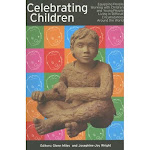Read this article from today's BBC News...
What would YOU do?
Thinking. Growing. Learning. Changing.
Tuesday, 25 October 2011
Monday, 24 October 2011
Living with Reactive Attachment Disorder
"In order to understand what an unattached child feels, one must understand his perspective. Imagine that you are the young child who must cross a frozen lake in the autumn to reach your home. As you are walking across the lake alone, you fall suddenly and unexpectedly through the ice. Shocked and cold in the dark, you can't even cry for help. You struggle for your very life. Alone, helpless, and hopeless without the very air you need to breathe for life, you struggle to the surface. Locating the jagged opening, you drag yourself through to the air and crawl back into the woods from where you started. You decide to live there and never, ever to return onto the ice. As weeks go by and you see the others skating and cross the ice, you become clearer in your perception that the ice hates you alone. If you go onto it, you will die.
The ice represents the strength of the bond and your ability to trust. It was damaged by the break in your connection to someone you trusted. Some children have numerous bonding breaks throughout their young lives. This is like crashing them through the ice water each time they are moved, scarring and chilling their hearts against ever loving and bonding again."
Thomas, N - "When Love is Not Enough" (2005:15)
What is worse, is that you can see the illogical stupidity of it all in your own mind, but you can never change how you feel. Regardless, that fear will never leave you.
Thursday, 6 October 2011
The Primal Wound
"For adoptees [in particular], the need to defend against the possibility of abandonment or other losses intrudes into almost every relationship, beginning with the adoptive [parents] and including their relationships to friends, lovers and even themselves." (Verrier 1993:59)
Attachment Theory has been at the forefront of psychological studies for decades. The concept of primal attachment, both prenatal and postnatal, has contributed greatly to both professional practise and practical parenthood all over the world. In recent years however, there has been a greater emphasis on what happens when attachment 'goes wrong'. Attachment Disorders are becoming more widely recognised as a social and psychological issue. Since the 1950s, Freud and Bowlby have contributed substantially to discussions on the need for secure attachment in the early years and the significant impact of what happens when loss or trauma occurs, derailing the attachment process. Much work has been added to discussions since then.
However, one place that this discussion is less prominent is within the faith community. Attachment disorders affect people greatly, from childhood right through to their adult lives, and will undoubtedly impact their faith development on many levels, as well as their ecclesial relationships. Those with insecure attachment will often experience severe mistrust, anxiety, emotional instability and relational difficulties. There can be no doubt that these difficulties will not only impact their human relationships but will transfer vertically to their relationship with God. Over the next 6 months I'll be doing more in-depth research in to the reality of attachment disorders and their impact upon children's daily lives and faith development. From time to time I'll post some of my findings here for others to engage with.
My studies will include children in foster care, adoptees, street children and children who have experienced significant loss or trauma in the early years. If anyone has good resources they can share or something they feel might contribute to my research, please get in touch! This is a very specific subject that has very little published material and any help would be muchly appreciated!
My studies will include children in foster care, adoptees, street children and children who have experienced significant loss or trauma in the early years. If anyone has good resources they can share or something they feel might contribute to my research, please get in touch! This is a very specific subject that has very little published material and any help would be muchly appreciated!
Labels:
Research
Location:
Glasgow, Glasgow City, UK
Subscribe to:
Posts (Atom)



